B-BBEE in a Global Context: Aligning South African Transformation with Enterprise Growth

Broad-Based Black Economic Empowerment (B-BBEE) remains a cornerstone of our national development, essential for redressing the deep-seated structural inequalities inherited from apartheid. Yet, its relevance and implementation must increasingly be viewed through the lens of a globalised economy, foreign direct investment, and shifting geopolitical and market pressures.
Beyond Skills: Cultivating Social Intelligence for a Future-Ready South African Workforce

South Africa faces a critical challenge: a 45.5% youth unemployment rate in 2024 and a persistent disconnect between qualifications and available jobs. This significant skills gap, evident across all industries, including the burgeoning fields of AI and digital technologies, demands innovative solutions that bridge the divide between education, employee well-being, and genuine workforce readiness
Navigating the New EE Landscape: Your Action Plan for the EEA12 Analysis & EEA13 Plan

As many of you are aware, the landscape of Employment Equity in South Africa is undergoing a significant transformation. The Minister of Employment and Labour has ushered in the new Employment Equity Regulations, 2025, repealing the 2014 version. Alongside this, a crucial notice on the national economic sector and corresponding sectoral numerical targets came into effect on 15 April 2025.
Mastering WSP and ATR Submissions: A Comprehensive Guide for South African Businesses

As we approach the critical 30 April 2025 deadline for Workplace Skills Plan (WSP) and Annual Training Report (ATR) submissions, it’s imperative for South African businesses to understand the intricacies of this process. My name is Andrea Swart, and as Head of Research Methodology and Communities at BEE123, I’ve spent years analysing and guiding organisations through the complexities of skills development and B-BBEE compliance. This article aims to provide an in-depth, expert-driven guide to help you navigate WSP and ATR submissions effectively.
Navigating the New Employment Equity Landscape: A Compliance Roadmap for JSE-Listed Companies (Part 2)

Building upon the foundation laid in Part 1, we now delve into the critical operational aspects of Employment Equity (EE) compliance. For large companies, these elements are not just regulatory requirements but strategic imperatives for fostering inclusive and sustainable growth.
Navigating the New Employment Equity Landscape: A Compliance Roadmap for Companies (Part 1)

In the dynamic landscape of South African business, particularly for large and JSE-listed companies, staying ahead of regulatory changes is paramount. The recent amendments to the Employment Equity Act (EEA) present both challenges and opportunities for HR and Transformation professionals. At BEE123, we understand the complexities involved, and this series aims to provide a clear, actionable roadmap to ensure your organisation not only complies but thrives in this evolving environment
Navigating Employment Equity Compliance: Justifiable Grounds for Non-Achievement of Numerical Targets

With South Africa’s Employment Equity Amendment Act (EEAA) now in effect, businesses are actively navigating the complexities of sectoral numerical targets. While these targets drive workplace transformation, achieving them isn’t always straightforward. As a director, understanding the justifiable grounds for non-compliance is essential for maintaining compliance while addressing legitimate business challenges.
Reimagining Transformation: A R100 Billion Gamble or a Genuine Leap Forward?

South Africa stands at a critical juncture. The announcement of the proposed R100 billion Transformation Fund by Minister Parks Tau has sparked a national debate: Is this a bold step towards inclusive growth, or a replay of past missteps? As someone deeply invested in the mechanics of economic transformation, I find myself asking the tough questions.
Skills Development: A Holistic Approach to Transform Your Business

Skills Development, often perceived as a complex and intricate element of the B-BBEE scorecard, presents a unique opportunity for strategic growth when approached holistically. In my experience, the common question, “How much do we need to spend to meet the 6% target?” only scratches the surface. It’s a question that demands a more nuanced answer, one that goes beyond simple compliance and delves into strategic business development.
Building Inclusive Economies: Leveraging B-BBEE for Small Business Growth

Small, Medium, and Micro Enterprises (SMMEs) are the lifeblood of South Africa’s economy, contributing significantly to job creation and business turnover. As a nation, we recognise that sustainable and inclusive growth hinges on equitable access to economic opportunities, particularly for historically disadvantaged communities. Broad-Based Black Economic Empowerment (B-BBEE) plays a vital role in addressing past disparities and fostering black participation across business ownership, management, and skills development. At BEE123, we understand that strategic B-BBEE compliance isn’t just a requirement; it’s a powerful tool for SMMEs to unlock government contracts, corporate supply chains, and enhanced market competitiveness.

